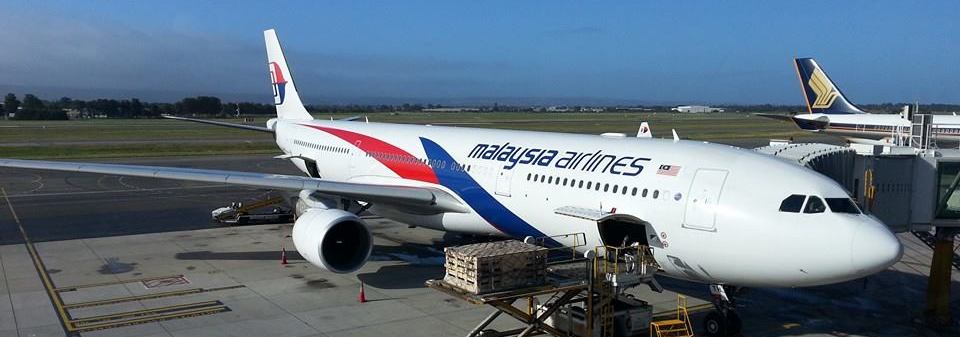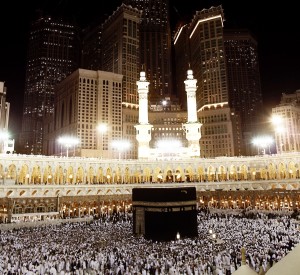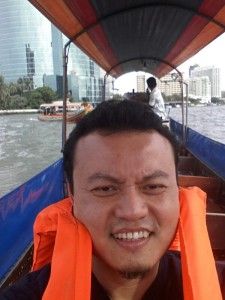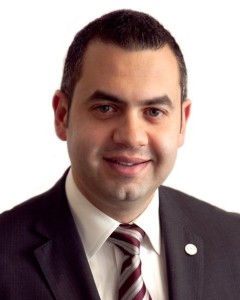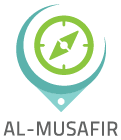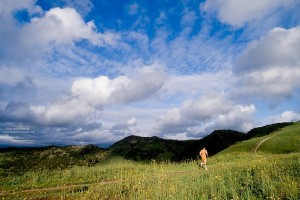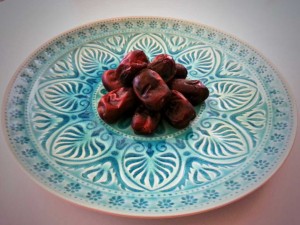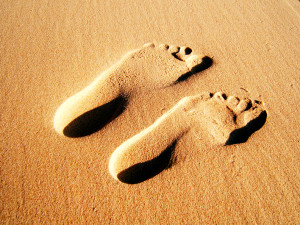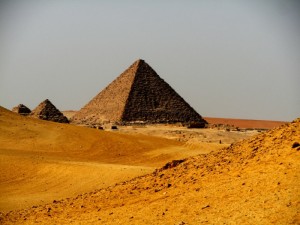We wish everyone a blessed and very happy Eid Al-Adha. The Eid marks the end of Hajj which emphasises making personal sacrifices in the service of Allah (God). May we continue our resolve to becoming better in everything we do and making the world a better place for everyone, insha’Allah (God willing). As always, be safe and enjoy!
Rising Asia: At Work and Play
In the third installment of our Connecting Musafirs conversation series, we talk to Jaafar Rihan who is General Manager, Capital Markets and Head of Islamic Investments at the Employees Provident Fund, an agency under the Ministry of Finance Malaysia and one of Malaysia’s largest institutional investors with more than USD150 billion under management.
Jaafar Rihan is well aware of the opportunities within the Asian region, both economic, as well as personal. As a senior investment officer at the Employees Provident Fund (EPF), he is directly responsible for exploring viable investment opportunities in markets outside Malaysia.
His work requires him to travel frequently around Asia as well as further-flung markets, which have afforded him some remarkable investment prospects as well as cultural insights and experiences.
Recently, in Bangkok for an investor roadshow, he was taken over by the central role the Chao Phraya River played in serving the nation and providing livelihood for the people.
“I was amazed at the weight of Thai history and culture along the river. It is the heart of trade and transportation for many Thais, even till today,” says Jaafar.
Jaafar finds there are always plenty of things to learn from other Asian countries, which could benefit Malaysia and fellow Malaysians in general, providing a different perspective to our existing customs.
“For example, all Thais practise the same gesture, the wai, which is generally a show of respect. It is one of the many marks of a uniform identity, something which could be attributed to the single school education and their social behaviour,” he explains.
Jaafar tends to rely on Google for travel preparations, particularly around weather conditions and information on what to pack. He does find that one of the challenges as a Muslim traveller remains finding good places to eat easily.
“When in doubt, I just stick to seafood,” he adds.
While Jaafar looks forward to new tools to navigate around this challenge, he isn’t letting it slow him down on the experiences and learnings from travel. He will be spending more time in and out of the region this year in his capacity at the EPF before taking a personal trip to Australia with his family at the end of the year.
Penang Street Food @ Dickens Street, Penang
Penang, Malaysia is synonymous with great food. There is one problem though, most of it is non-Halal. That doesn’t mean there aren’t any but it is hard to come by unless you go for traditionally Halal fare like Mamak (Indian-Malay) or Malay food. Other types of food like Penang street food are non-Halal unless cooked by a Muslim which sometimes doesn’t come out quite right i.e. it is not always authentic.
Enter Bee Hwa Cafe, a kopitiam (Malaysian coffee shop or cafe) which serves Penang street food that’s Halal! It’s so authentic that we’re told by our non-Muslim friends that it’s the real deal when compared to the non-Halal alternatives. When eating there, you’re also comforted by the fact that you’re right across from the Penang police headquarters. Arguably the safest kopitiam in Penang, you’ll often eat amongst uniformed and undercover cops – you can tell because they usually carry a compact sling bag which presumably conceals a fire arm and sometimes eat with their uniformed colleagues. The day we were there, a local television show was doing a piece on Bee Hwa Cafe. Good to know we’re not the only ones who think this place is fantastic.
Back to the food. It’s awesome! They have a variety of stir fried dishes like Char Koay Teow (stir-fried ricecake strips), Char Pui (stir-fried rice) and Char Mee (stir-fried noodles). If soupy is what you’re after, try the Hokkien Mee (prawn noodles), Curry Mee (curry noodles) and Koay Teow T’ng (ricecake strips in a chicken broth). Be sure to specify the amount of heat you prefer in your food because it is turned up all the way to at least an 8 by default. Wash it down with your typical kopitiam drinks like teh tarik (literal translation is ‘tea pull’, hot local tea with condensed milk and frothed by transferring the tea from one pot to another repeatedly), teh oh (hot plain local tea), kopi (hot local coffee with condensed milk), kopi oh (hot plain local coffee), Milo (hot Milo with condensed milk), Milo oh (hot plain Milo), bali (hot barley) and some exotics like teh oh swee kam (hot plain local tea with lime), teh oh ‘c’ kosong (hot local tea with evaporated milk and without sugar) and derivatives thereof. Note that adding the word peng after each makes it an iced drink, for example, teh oh peng is an iced plain local tea. Finally, order the roti bakar (toasted bread with butter and kaya, a sweet coconut jam) for dessert even though this is usually a breakfast item.
Enjoy!
Address: Lebuh Dickens (a.k.a. Dickens Street), 10050 Georgetown, Penang, Malaysia (directly across the street from the entrance to the Penang police headquarters)
Phone: We don’t know whether there is one – just go there!
Hours: 7am – 5:00pm Monday to Saturday / closed on Sunday
Travel is Personal Business
We continue our Connecting Musafirs conversation series with Houssam Abiad, a multi-talented and inspiring business traveller who hails from Adelaide, South Australia.
To Houssam Abiad, the lines usually drawn between work and leisure are all but indistinct.
“You have to enjoy what you do,” he articulates.
The young South Australian certainly thrives from wearing many different hats – as an Adelaide City Councillor, focused on preserving and growing the business and economic development in one of the fastest growing cities in Australia; as a multi-awarded serial entrepreneur with at least three established businesses in the information & telecommunications technology and food & beverage industries; and as a strong advocate for community engagement and multiculturalism.
While his trips often start out work-related, Houssam draws enjoyment and wisdom from personal experiences while in a new place. His travels have taken him across the globe, to the Gulf region including the United Arab Emirates and Lebanon as well as the United States, and that does not include the places he has been to for dedicated holidays.
“To me, travel is as much about the people as it is the place. Who and where you connect with, such as discovering a street by accident, that perhaps only the locals knew about. My travel memories are created around exactly these places and people,” shares Houssam.
The value of connecting with the local community cannot be underestimated.
Houssam revealed that where possible, he prefers spontaneity to meticulous planning and preparation when it comes to seeking these travel experiences. While he would see online search as his first point of reference for essential information such as where to go to observe Muslim prayer times or for shisha, there have been occasions where online searches have offered inaccurate information.
“I would certainly see the value of being able to connect with the local community, although that is naturally a time-consuming process,” he says.
Houssam added that he definitely see the potential advantage of an app or a service which would allow musafirs (travellers) like himself to quickly connect with the local community.
As he continues to make his mark around the world and on behalf of the city he calls home, Adelaide, there is no doubting Houssam will inspire and inculcate in young musafirs everywhere the same passion and integrity to serve for the greater good. And to enjoy themselves while doing it.
Happy Eid Al-Fitr 2013!
Ramadan has come and gone so quickly. We hope you’ve had a most fulfilling Ramadan. It is now time to celebrate. We wish everyone a very happy Eid Al-Fitr! Be safe and enjoy. Here are a few more Eid Al-Fitr greetings in languages from around the world…
Acehnese – Uroë Raya Puasa
Bosnian – Ramazanski bajram
Chinese – 开斋的盛宴 / Kāizhāi de Shèngyàn
Croatian – Ramazanski bajram
Dutch – Suikerfeest
German – Fest des Fastenbrechens
Hebrew – עיד אל-פיטר
Hindi – ईद उल-फ़ित्र
Indonesian – Idul Fitri, Hari Lebaran
Malay – Selamat Hari Raya Aidilfitri
Spanish – Fiesta de la ruptura del ayuno
Turkish – Ramazan Bayramı
Urdu – چھوٹی عید
Photo courtesy of Sky Wosh – thank you.
All Dressed Up and Ready To Go!
We’re thrilled to show Al-Musafir’s new ‘clothes’ today! We hope you like what you see. Al-Musafir’s brand identity is inspired by the singular vision to enable seamless sharing and connectivity with one another at every stage of our journey – right where we are, where we’ve been and where we’re going.
Watch this space for more of what the Al-Musafir smartphone app will look like, while we race to get the finished product ready for you, insha’Allah.
Register your interest at http://signup.al-musafir.com to be among the first to use the free Al-Musafir smartphone app. Like us on Facebook and follow us on Twitter for updates.
Peace everyone!
Keeping Fit & Healthy During Ramadan (and as a Musafir)
Al-Musafir wishes to thank Alfiza Rahman, a certified personal trainer from Adelaide, Australia, owner of Fit Chicas Personal Training and fellow musafir (traveller), for contributing this article.
Keeping fit and healthy can be difficult when we travel especially if it takes a long time to get to a destination and worse still, if it is to a different time zone altgether. It is even more challenging for Muslims who need to travel during Ramadan, the month when Muslims fast from dawn until sunset. Where does one find the time? In any case, we should try to eat well and get in some exercise to maintain our fitness and health. Given that this is the month of Ramadan, the focus of this article is on maintaining fitness and health during this holy month but much of which also applies to musafirs (travellers).
Many Muslims use Ramadan to embark on self-reforming habits, be it on a spiritual, mental or physical level. For those who have been putting off that New Year’s resolution to get healthier and fitter, Ramadan is a good month to start focusing on healthy habits, and kickstart towards achieving your health and fitness goals. A plan that incorporates both nutrition and exercise will help you stay healthy and fit throughout Ramadan. Here are a few tips to get you started.
Nutrition
- Eat fresh, whole foods that are nutritious and not processed or junk ‘food’.
- Eat a good blend of foods that have protein, fibre and ‘good/healthy fats’ especially during suhoor (meal prior to commencing the fast) to maintain muscle mass, prevent hunger pangs and to keep your energy levels up.
- Avoid binging at night. Eat small frequent meals instead of large meals during iftar (breaking fast) and suhoor to maintain an adequate metabolism level and a balanced blood sugar level.
- Maintain proper hydration by drinking plenty of water, but try to avoid sweetened drinks.
Exercise
- Ramadan is not an excuse not to exercise. Exercising during Ramadan is especially important to maintain a healthy metabolic rate which tends to dip when fasting as the body will tend to go into preservation mode.
- The best time to exercise is after iftar or before suhoor. If you choose to exercise after iftar, eat a light meal when breaking fast and wait at least 1 hour before exercising. If you plan to exercise before suhoor, drink plenty of water before exercising.
- For those who are already exercising, Ramadan is not a month to hit personal bests, instead focus on maintaining your fitness. Consistency is key here, so reduce the intensity of your exercise so that you are not over-taxing your energy reserve.
- If you are just starting your fitness regime, start with getting 30 minutes of moderate intensity exercise at least 2 to 3 days a week. Do whichever activities you enjoy as long as you keep moving during Ramadan. Go for a stroll, a brisk walk or a jog, and if you are short on time, see this for a great example of a 7-minute workout routine that you can do just about anywhere with minimal space and equipment. Including a 5-minute warm-up and a 5-minute cool down, this exercise routine should take you no more than 20 minutes. Great for people on the go!
Always listen to your body when you begin a new exercise routine to avoid getting injured. Do what you can, when you can, but more importantly, be consistent. With proper planning and preparation, you can have your healthiest Ramadan yet, insha’Allah.
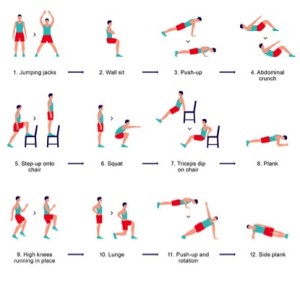
Great for people with little time such as musafirs (travellers), perfect for Ramadan. Go here for workout details.
Ramadan Mubarak!
A Glimpse of the Al-Musafir App
We’ve taken the first steps towards bringing the Al-Musafir smartphone app to you and are excited to start sharing more on this very soon! Our visual identity will be unveiled before the end of July 2013, Insha’ Allah (God willing). We hope to follow this with more previews of what the Al-Musafir smartphone app can do, while we work really hard to build it for you.
Thank you for your interest and support. In the meantime, please keep checking back here, subscribe to our blog, register your interest to use the app, like our Facebook page and follow us on Twitter for updates.
Stay tuned!
Photo courtesy of Jonathan Yee Photography – thank you.
A Healthy Traveller is a Happy Traveller
Al-Musafir is grateful to Dr. Zaki Ibrahim, a medical practitioner and fellow musafir (traveller), for contributing this piece.
I have been in Malaysia since 21 April 2013. Alhamdullillah (praise to God), my family and I have settled back in Penang well. We are excited to be back in our home country although we miss our beloved adopted city, Adelaide. We miss Adelaide very much! In our first 3 weeks in Malaysia, we suffered travel related illnesses. When I look back, our preparation was minimal. I would like to share tips on how to prepare ourselves to avoid or minimise travel related illnesses. As Muslims, we are required to prepare as much as we can and then we leave it to Allah (God). This is the concept of tawakkul.
People who travel have up to a 50% chance of suffering travel related illnesses. While most travel related illnesses are minor, some very serious infectious diseases are endemic in some parts of the world. All travellers should be prepared and be aware of health issues and measures to protect themselves from sickness. The most common travel related illnesses are gastrointestinal diseases usually contracted from poorly prepared foods or untreated water. To avoid diarrhoea, stomach pains, nausea and vomiting associated with these illnesses try the following:
Precautions to Prevent Gastrointestinal Diseases
- Consume boiled or bottled water. Use purifiers or tablets to purify water.
- Avoid ice in drinks.
- Avoid unpasteurised milk and dairy products.
- Avoid fruit and vegetables that have been washed with local water.
- Eat thick-skinned fruit and vegetables that you can peel yourself such as bananas, oranges and mandarins.
- Make sure food is cooked thoroughly and eat it while it is hot.
- Avoid shellfish.
- Don’t buy food from street stalls – hotels and busy restaurants are safest.
- Maintain a high level of personal hygiene.
Some serious infectious diseases such as malaria, yellow fever and dengue fever are transmitted through insect bites. While there are vaccines and drugs available to help protect against some of these diseases, travellers are advised to always take additional precautions to protect themselves as follows:
Precautions to Prevent Diseases Contracted Through Insect Bites
- Apply mosquito repellent that contains at least 30 per cent DEET.
- Stay indoors between dusk and dawn – mosquitoes carrying the malaria parasite generally feed at this time.
- Apply insect repellent such as permethrin, to your clothes and bedding.
- Wear socks, long pants and long-sleeved shirts when outdoors.
- Use a bed net.
- Stay in air-conditioned or screened accommodation.
You may want to consider arranging to have vaccinations or take medications to protect against diseases such as hepatitis, typhoid or malaria. In fact, some countries legally require travellers to have certain vaccinations such as yellow fever. As you will need to have some vaccinations weeks or months before travel, it is best to see your doctor 6 to 8 weeks before you go. However, if you have to travel on short notice, you can still be vaccinated with certain vaccines. When you are planning to travel, be prepared and aware of the travel related health issues. Always consult a doctor and take heed of health warnings issued by credible sources such as the Center for Disease Control and Prevention. May you be healthy on your happy travels ahead, insha’Allah (God willing)!
